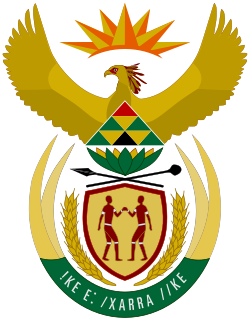This article includes a list of references, related reading, or external links, but its sources remain unclear because it lacks inline citations .(August 2025) |
This law-related article does not cite its references or sources. You can help Wikipedia by including appropriate citations, which can be found through legal research. Unsourced or poorly sourced material may be challenged and removed. (August 2025) |
| Films and Publications Act, 1996 | |
|---|---|
 | |
| Parliament of South Africa | |
| |
| Citation | Act No. 65 of 1996 |
| Enacted by | Parliament of South Africa |
| Assented to | 30 October 1996 |
| Commenced | 1 June 1998 |
| Amended by | |
| Films and Publications Amendment Acts, 1999, 2004 and 2009 Prevention and Combating of Corrupt Activities Act, 2004 | |
| Status: In force | |
The Films and Publications Act, 1996 is an act of the South African Parliament.
The act repealed a number of acts of prior legislation which censored literary and media works under that country's previous apartheid government.
It established a Film and Publication Board and Review Board. The Board's function would be to receive complaints, or applications to evaluate, a film or publication, to classify it according to its suitability for different audiences.